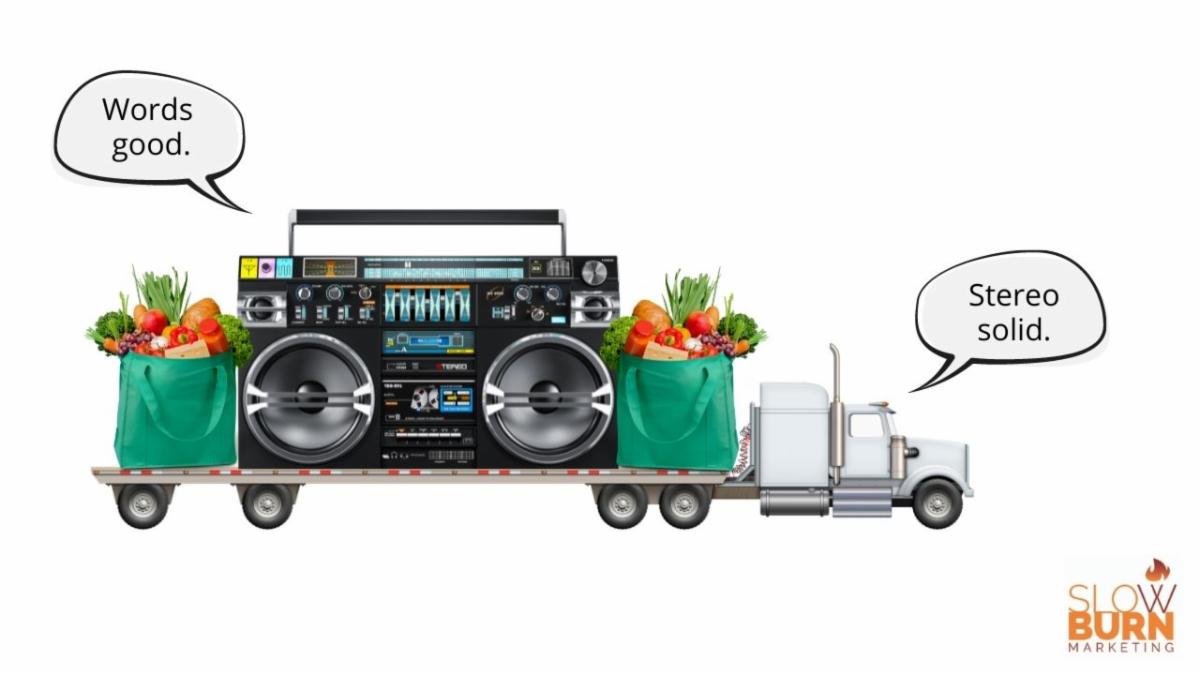|
The Foreign Invasion: They Live Among Us!
The words, that is. Foreign words live among us insomuch as language is alive. (That’s versus not “dead,” e.g. Latin, Sanskrit, Coptic, Akkadian, et. al.) Invaders of the day? The word “stereo,” which means “solid,” the word “truck,” which means “barter,” and a New Orleans idiom for going to the supermarket, “Makin’ groceries.” Nothing in the lexicon of United States English is as it seems. Our language is a pastiche of foreign words and phrases and translations that have invaded the zeitgeist at various times and have been assimilated for whatever reason. This vocabularic cultural habit makes English, especially our brand of it, a nightmare for the foreign speaker who has to navigate the minefield of explosive idiom with care and dexterity lest they be blown to bits by a metaphorical munition that meant no harm but destroyed an otherwise perfectly passive thought. Why is your relentless scribe ranting about all this? It began while thinking about good words for Words Good. That’s where “stereo” came into the equation. Back in the day, when high-end stereo equipment was part of my professional life, the word’s etymology was a revelation. Learning that the word has nothing to do with “two” (as in a pair of stereo speakers), and everything to do with creating a solid portrayal of sonic reality made new sense. This simple tidbit changed my understanding of both the medium and of my job. The word “stereo” comes from the Greek word, “στέρεο.” Go ahead and plug that startling little collection of characters into Google Translate. Google’s polyglot gods of everything will tell you that the word means “solid.” (And if you ask Google to pronounce the word, it sounds oddly like "stereo.") The other part of the entire original word, “phonic,” as in “stereophonic” (we Americans love to truncate everything to prevent our tongues from tiring on polysyllabic overwork) means “sound.” A solid sound. Real. With length, width, depth and dimension. The word “stereophonic” was given to us by the American electrical engineering and manufacturing company, Western Electric. Ironically, the medium of stereophonic sound as we know it was given to us by the English in the 1930s, courtesy of EMI. Once again, two cultures divided by a common language and disparate engineering philosophies. Then, Huck Finn drifted across my radar on a raft. He came bringing with him the word “truck.” As in, “I don’t hold no truck with the likes of you.” What the truck? From context, I always took “truck” to mean that there was no involvement, and the “no-trucker” was not buying whatever the subject was selling. Well, eventually, your scribe needs to know. And it seems that in the context of 1800s Hannibal, Missouri, “truck” comes from the Old North French word “torquer,” meaning to barter or exchange, and has its roots in Medieval Latin. And somewhere in all this word salad, I was reminded of one of my favorite local idioms when I met a small-business entrepreneur in Mississippi whose company is called, “Makin’ Groceries.” That idiom is unique to New Orleans, and means that you’re going to the supermarket. I’ve known this phrase for years, and it’s always been a headscratcher until just yesterday. That’s when I finally put it together with New Orleans’ French heritage. The French use the verb “faire,” to interchangeably mean “to do” or “to make.” Looking at the French, “faire des courses,” one can literally translate the phrase to English as “Makin’ groceries.” These are the kinds of nonsensical things that bang (!) around inside my brain like the little white balls in the lottery numbers machine. The difference is that instead of numbers, each ball has a word on it. (And in case you’re wondering, that machine with the little white balls flying around inside is called an “air mix” machine. Bonus words good!) Anyway, all this to say: English is a crazy mixed up language of foreign influence that screws with us daily. So, what is your personal favorite unusual word or phrase? Is it uniquely colorful? Does it mess with people’s heads? Has its etymology changed the way you view things? Send or post your reply by the end of the week. (That’s 12/10/21.) We’ll feature you and your reply here in the screed and put you on the road to another few seconds of your 15-minute fame allotment. Now go make groceries with no truck in nonsense and do it in stereo. Cheers, Blaine Parker Your Lean, Mean Creative Director in Park City LIGHTNING BRANDING ON AMAZON The Kindle edition of our new book is now available at Amazon for the REDUCED bargain price of $9.95 For details about our new Lightning Branding courses, both do-it-yourself and we-do-it-with-you editions, click here. (There's even a video of us!)
0 Comments
Leave a Reply. |
AuthorBlaine Parker is prone to ranting about any and all things related to brand. In many ways, he is a professional curmudgeon. While there is no known vaccine for this, the condition is also not contagious. Unless you choose it to be so. Archives
February 2022
Categories
All
|
|
© Copyright 2020 Slow Burn Marketing LLC |


 RSS Feed
RSS Feed

